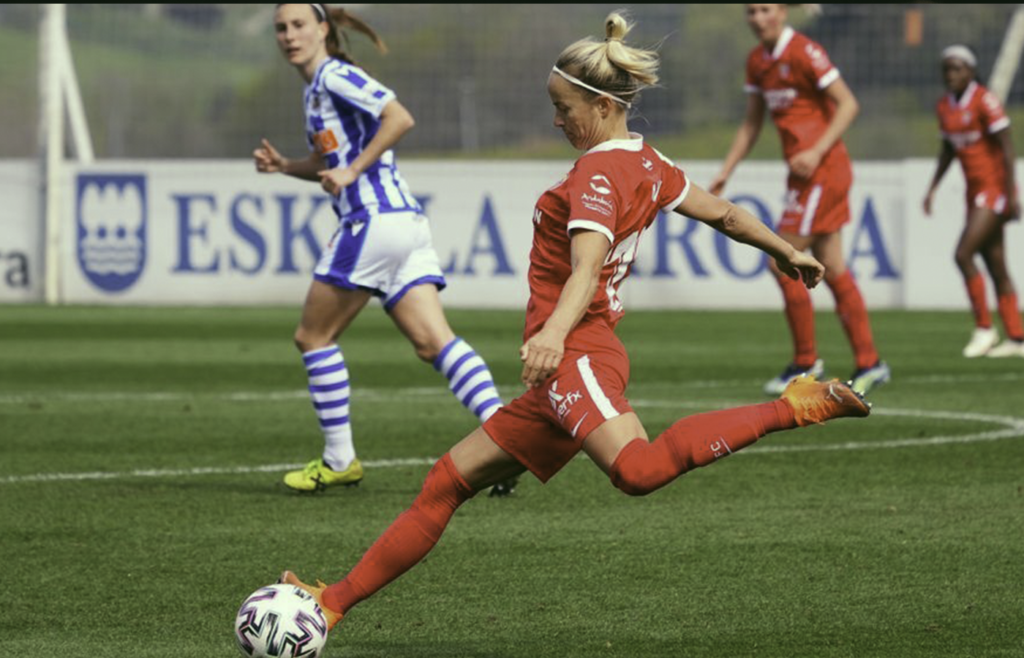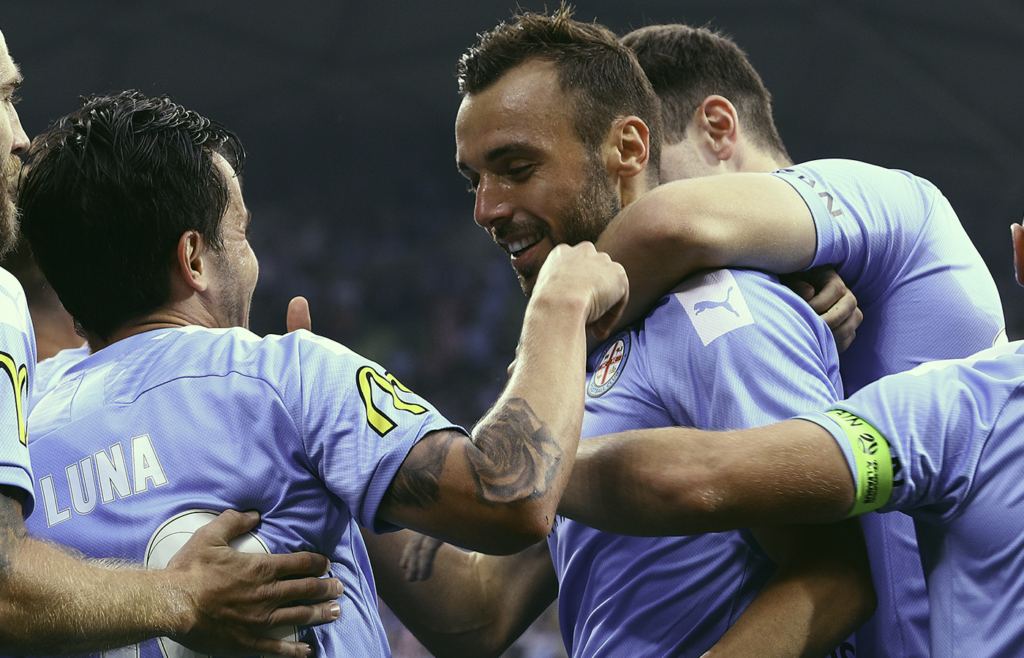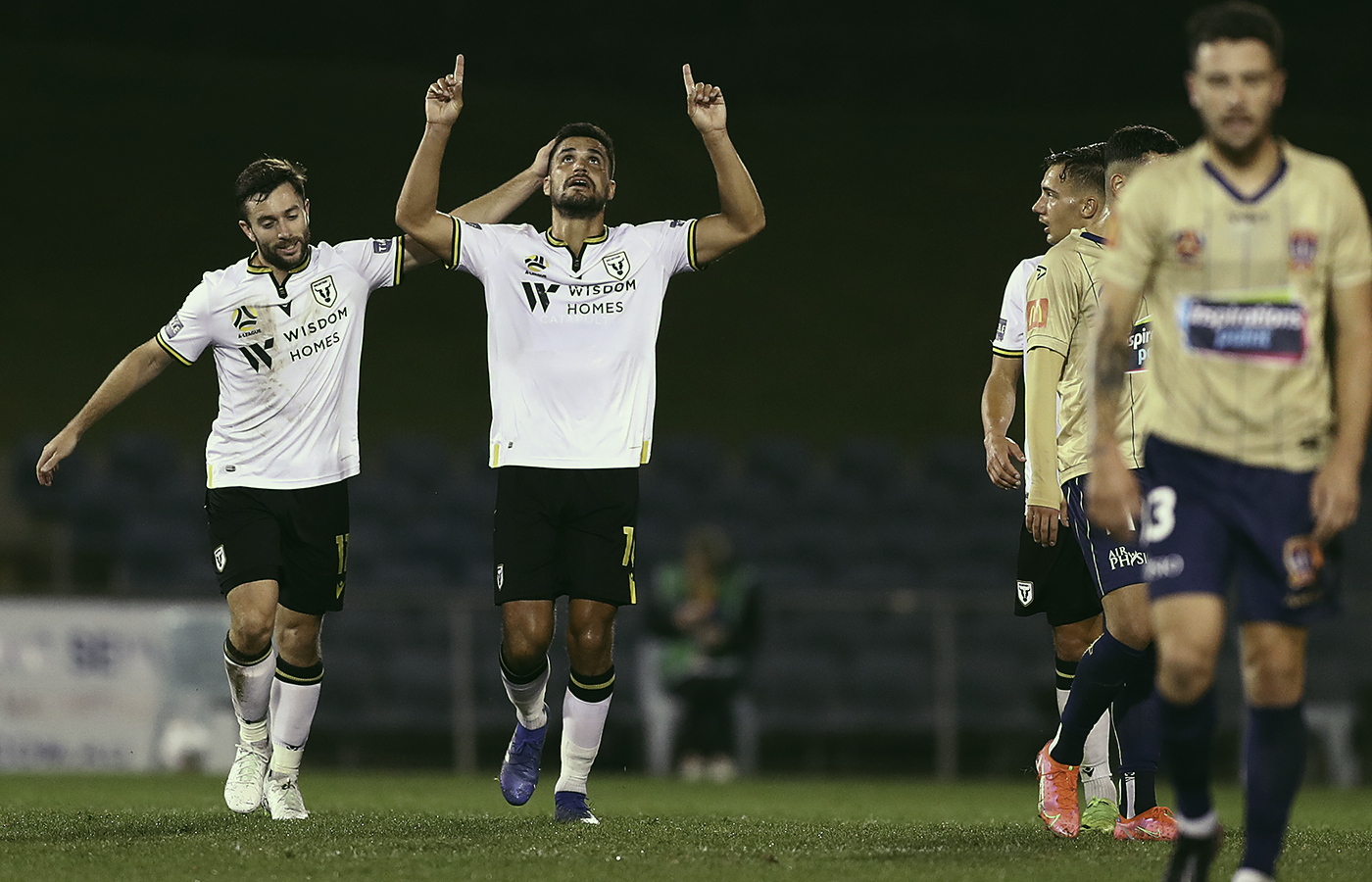Moving to a foreign country to pursue a professional football career can bring exciting opportunities – but it can often present new challenges.
Different football philosophies and new cultural norms and customs require adjustment, but the most common challenge for players who have earned a life-changing move overseas is communicating in a new language, whether with new teammates or navigating unfamiliar cities and surrounds.
Luckily for many PFA members, subsidised language lessons have helped Australian players based overseas to ease into their new football environments and, equally, for foreign players who have come to ply their trade on Australian shores.
For example, the Matildas’ Aivi Luik has benefited from entry-level Spanish lessons, accessible through the PFA’s education grants, to ensure she can better connect with her teammates, coaches and staff at Sevilla Feminino.
In a recent interview with matildas.com.au, Luik said the language barrier had been the “biggest obstacle” in her adjustment to the Primera División.
“That’s been the hardest thing and the biggest obstacle that I’ve had to and am continuing to try to overcome. I’m getting better at it week by week, the more Spanish that I learn, but it definitely makes it difficult,” Luik said.
“A lot of your success in the backline relies on communication and really quick decision making. And the thing is, when you’re in the backline, if you make the wrong decision, or if you’re a split second off, that could be the difference between a goal and not.

“It can be a real challenge and quite difficult to live and play sport in a foreign country when you don’t know the language, so for me, learning Spanish was always going to be hugely important for my success on and off the field,” Luik told pfa.net.au.
“It’s thanks to the PFA and their vested interest in players’ education that I was able to use their financial support to make my everyday life and job as a footballer so much easier here in Spain.”
In the A-League, French attacking midfielder Florin Berenguer and Uruguayan Adrian Luna’s impact for A-League leaders Melbourne City FC would perhaps have been reduced if they weren’t able to communicate with their teammates.
With both players now having represented City over the course of the past two seasons, they have benefited from English lessons that were covered by the PFA when they first joined the A-League.
“The English lessons have helped me and my family settle into life in Australia,” Berenguer told pfa.net.au. “It was important for me to do this because I came to Australia to try something different and learn something new.”

It’s a similar situation for former Uruguayan youth international Luna, with the 29-year-old English’s lessons helping him to better connect with the club and fans of the City.
“Learning English has helped me to work together with my team mates on and off the pitch. It’s good to be able to talk to people at the club, fans, staff and connect on a different level.”
Berenguer’s compatriot and Macarthur’s French midfielder, Loic Puyo, has also benefited from learning a second language through the PFA with the A-League’s newest club, with ‘football specific’ lessons assisting with his transition to life Down Under.
“I’ve enjoyed coming to Australia; there is a big difference between here and Europe. The lifestyle is fantastic and Sydney is beautiful. It’s a beautiful country.

“My language lessons are coming along well. It’s very interesting and I’ve learnt a lot. It’s very specific on football language, my English was pretty bad to start, but I’m really enjoying it and it’s helped me a lot with communicating in matches with my team mates.”







